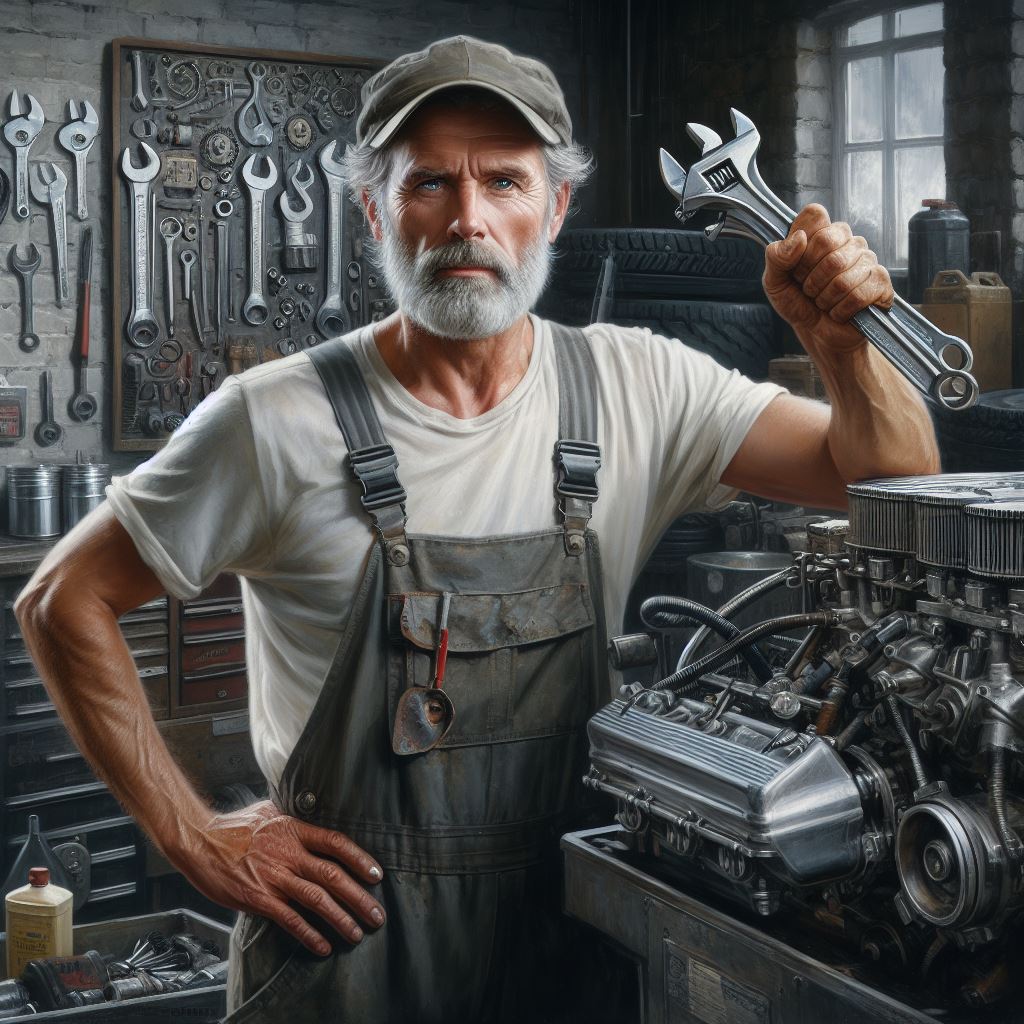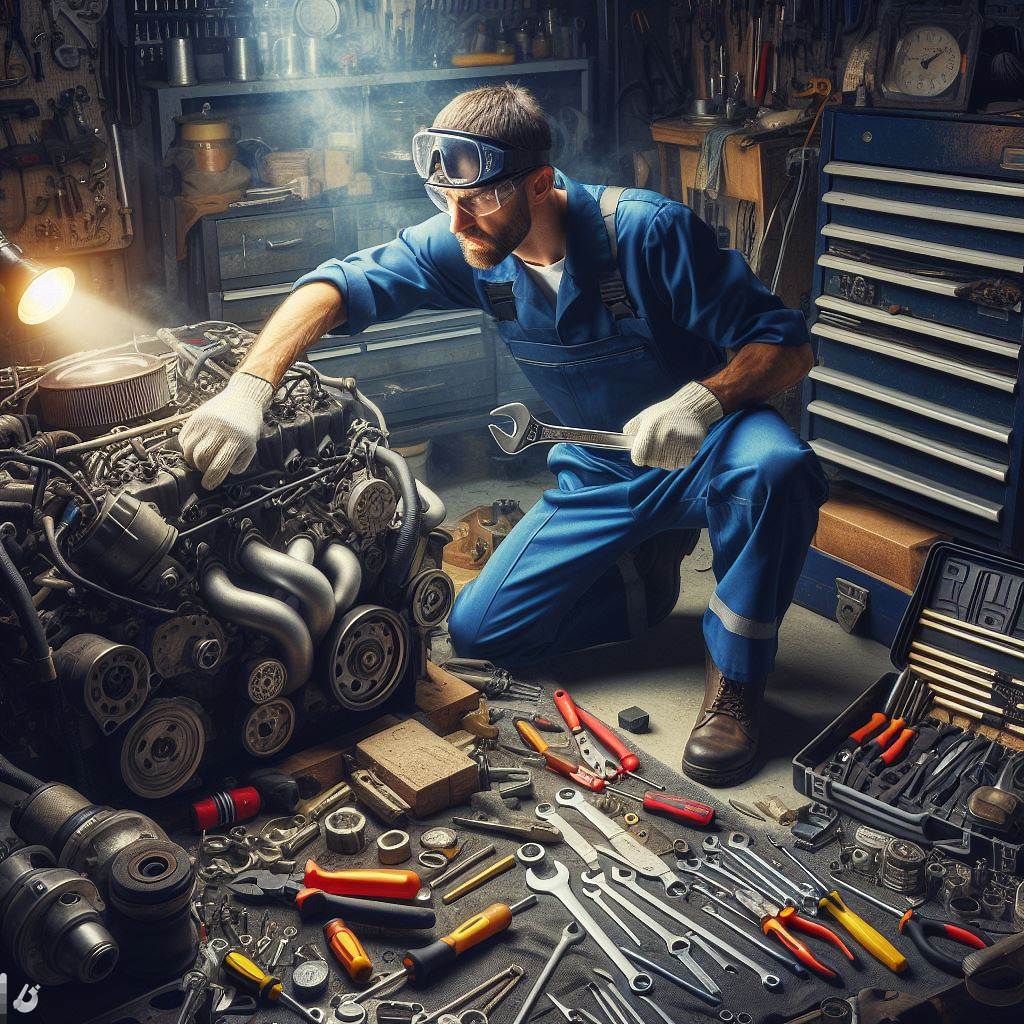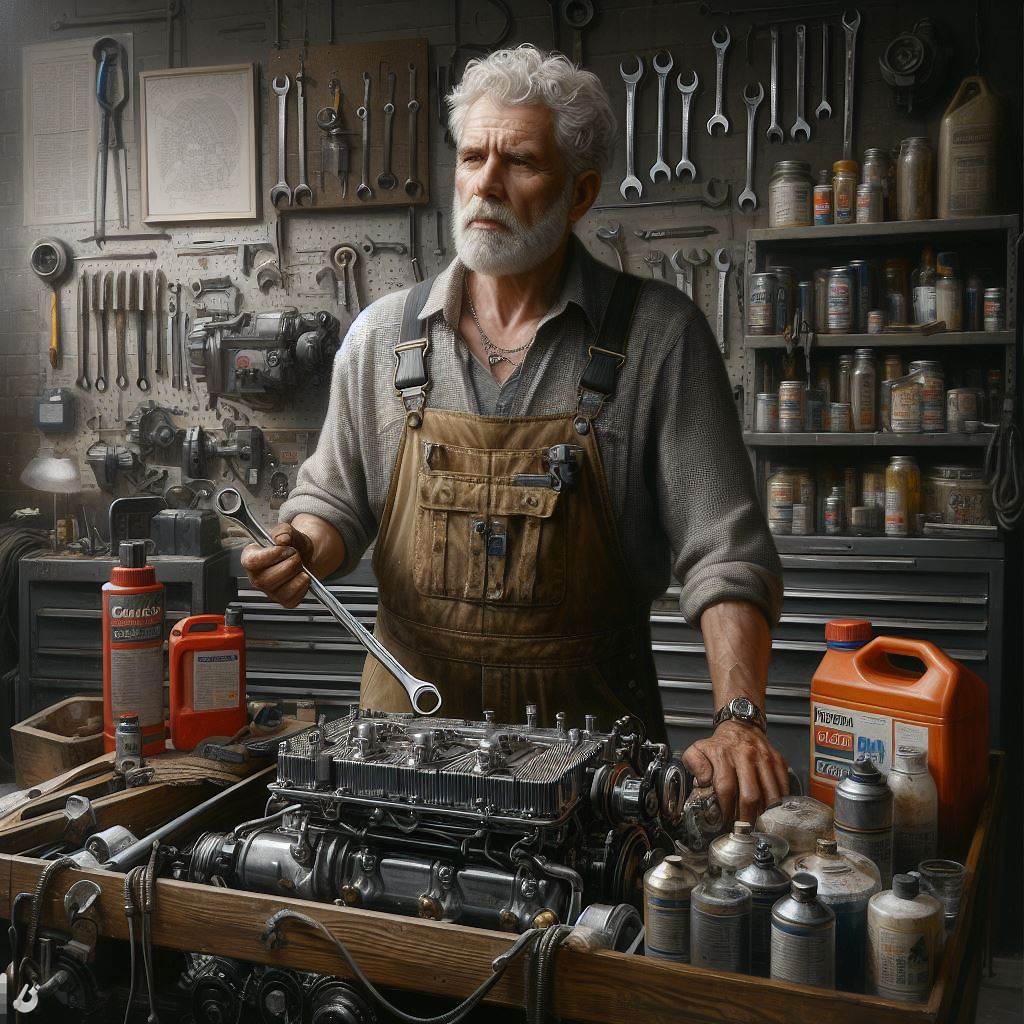Introduction
In the UK, Mechanics & Customer Service plays a crucial role in the automotive industry.
Customer service is vital in maintaining trust, satisfaction, and loyalty from customers, ensuring repeat business.
The UK mechanic industry is highly competitive, with numerous specialized workshops and garages spread across the country.
These mechanics cater to a wide range of vehicles, from cars to motorcycles.
The industry employs skilled mechanics who are trained to diagnose and repair various mechanical issues.
Customer service is particularly important in the mechanic industry as it affects the overall experience of customers when visiting workshops or garages.
A positive customer service experience can lead to happy and satisfied customers who are more likely to return and recommend the mechanic to others.
Conversely, poor customer service can result in negative reviews and the loss of potential customers.
UK mechanics often prioritize customer service by offering transparent communication, providing timely updates on repairs, and ensuring fair pricing.
Additionally, they aim to create a friendly and welcoming environment for customers, answering any questions and addressing concerns.
Overall, customer service plays a pivotal role in the success and reputation of mechanics in the UK, helping them stand out in a competitive market while ensuring customer satisfaction.
Customer Expectations in the Mechanic Industry
Common Expectations of Customers in the Mechanic Industry
- Reliable repairs and services for their vehicles, ensuring their safety and functionality.
- Timely delivery of services, including accurate estimation of repair duration.
- Fair pricing and transparent cost breakdown to avoid any surprises.
- Quality replacement parts used in the repairs to ensure the long-term performance of their vehicles.
- Proficiency and expertise in diagnosing and fixing various mechanical issues.
The Importance of Effective Communication and Transparency
Clear and effective communication is crucial for mechanics to meet customer expectations.
- Explaining the issues found in the vehicle in a non-technical manner, ensuring customers understand the problem.
- Providing detailed information about the repair process and keeping customers informed throughout.
- Offering options and recommendations to address the problem, allowing customers to make well-informed decisions.
- Being transparent about the cost, including any extra charges or potential additional repairs.
- Ensuring timely updates on the progress of the repair to manage customer expectations.
The Role of Customer Service in Meeting and Exceeding Expectations
Exceptional customer service plays a significant role in the mechanic industry to meet and exceed expectations.
- Being friendly, approachable, and treating customers with respect and courtesy.
- Providing a comfortable waiting area with amenities such as Wi-Fi, refreshments, and a clean environment.
- Offering flexible appointment scheduling to accommodate customers’ busy schedules.
- Addressing customer concerns promptly and professionally, ensuring their satisfaction.
- Following up after the service to ensure the vehicle is performing well and addressing any further concerns.
In fact, mechanics must understand and meet their customers’ common expectations by prioritizing effective communication, transparency, and excellent customer service.
By doing so, they can build trust, loyalty, and exceed customer expectations in the mechanic industry.
Personalized UK Career Consulting
Receive tailored career guidance designed just for you. Get actionable steps and expert support to boost your career in 1-3 days. Take control of your career now.
Get StartedRead: UK Mechanics: Dealing with Difficult Clients
The Impact of Customer Service on Mechanics
Customer service plays a crucial role in the success of any business, including the mechanics industry.
In this blog section, we will discuss how customer service skills can enhance a mechanic’s reputation, provide examples of how positive customer experiences can lead to customer loyalty and referrals, and explain how good customer service can help a mechanic stand out in a competitive market.
Enhancing a Mechanic’s Reputation
- A mechanic’s reputation is built on trust, competence, and the ability to provide exceptional customer service.
- Good customer service skills can make a mechanic more approachable, leading to better communication with customers.
- By listening actively to customers and providing clear explanations, mechanics can build trust and credibility.
- Going above and beyond to meet customer needs and expectations can create a positive perception of a mechanic’s work.
Positive Customer Experiences and Customer Loyalty
- Providing excellent customer service leads to positive experiences, which can increase customer satisfaction.
- Satisfied customers are more likely to become loyal and repeat customers, choosing the mechanic for future services.
- Word-of-mouth referrals are powerful, and happy customers are more likely to recommend a mechanic to others.
- By establishing loyal customers and generating referrals, a mechanic can build a solid customer base and increase business.
Standing Out in a Competitive Market
- The mechanics industry is highly competitive, and good customer service can be a differentiating factor.
- Offering exceptional customer service sets a mechanic apart from competitors and builds a positive reputation.
- In a market where trust is paramount, being known for excellent customer service can attract more customers.
- Building relationships with customers through great service can result in long-term customer loyalty.
In essence, customer service skills have a significant impact on a mechanic’s reputation, customer loyalty, and success in a competitive market.
By providing excellent customer service, mechanics can enhance their reputation, generate customer loyalty and referrals, and stand out from the competition.
Investing in customer service training and focusing on building strong customer relationships is essential for mechanics who want to thrive in today’s market.
Read: The Impact of EVs on UK Mechanics’ Jobs

Challenges in Providing Customer Service in the Mechanic Industry
Common challenges faced by mechanics when it comes to customer service
In the mechanic industry, providing excellent customer service can be quite challenging.
Mechanics face numerous obstacles in meeting customer expectations, managing complaints, and balancing their workload.
However, there are several possible solutions and tips that can help them overcome these challenges.
1. Managing Customer Expectations
- Mechanics often struggle with managing customer expectations, especially when it comes to repair times and costs.
- It is essential to be transparent and communicate clearly with customers about the expected time and cost of repairs.
- Providing regular updates on progress can help manage customer expectations and avoid misunderstandings.
2. Handling Complaints
- Dealing with customer complaints can be stressful for mechanics, but it is crucial to address them professionally.
- Actively listen to the customer, show empathy, and acknowledge their concerns.
- Take responsibility for any mistakes and offer appropriate solutions or compensation.
- Ensure that customer complaints are resolved promptly and to the customer’s satisfaction.
3. Balancing Workload
- Mechanics often face a high workload, which can lead to delays and unsatisfied customers.
- Efficient time management and prioritization are key to balancing the workload effectively.
- Proper scheduling and realistic estimation of repair times can help prevent overload and ensure timely service.
- Hiring additional staff or outsourcing some tasks can also help manage the workload better.
Possible Solutions and Tips to Overcome These Challenges
1. Invest in Customer Service Training
- Mechanics should undergo customer service training to develop effective communication and problem-solving skills.
- Training should focus on how to manage difficult customers, handle complaints, and meet customer expectations.
2. Improve Communication Channels
- Establish multiple channels for customers to reach out and provide feedback, such as phone, email, or social media.
- Respond to customer inquiries and feedback promptly to demonstrate attentiveness and improve customer satisfaction.
3. Implement Transparent Pricing Policies
- Clearly communicate pricing structures to customers, including labor costs, parts, and any additional fees.
- Provide written estimates and explain any changes before proceeding with repairs to avoid surprises for customers.
4. Maintain a Clean and Organized Workspace
- A clean and organized workspace creates a positive impression and enhances professionalism.
- Implement a system to track and manage repairs efficiently, minimizing the chances of errors or delays.
5. Offer Guarantees and Warranties
- Providing guarantees and warranties on repairs can boost customer confidence and satisfaction.
- Clearly explain the terms and conditions of warranties to customers to manage their expectations.
6. Request Feedback and Learn from Mistakes
- Actively seek customer feedback through surveys or reviews to identify areas for improvement.
- Use customer feedback as a learning opportunity to enhance customer service and address any shortcomings.
In a nutshell, mechanics in the industry face various challenges when it comes to providing customer service.
However, by implementing effective strategies and making customer satisfaction a priority, mechanics can overcome these challenges.
Improved communication, managing expectations, and balancing workloads are essential for retaining satisfied customers and building a strong reputation in the mechanic industry.
Read: Balancing Work-Life as a UK Mechanic
Your Dream Job Starts with a Perfect CV
Get a tailored CV and cover letter that captures your unique strengths and stands out in your industry. Let us help you make an unforgettable first impression.
Get StartedTraining and Development for Mechanics
In the automotive industry, training and development play a vital role in improving mechanics’ customer service abilities.
Continuous training not only enhances mechanics’ technical skills but also equips them with the necessary tools to provide exceptional customer service.
By investing in ongoing training and development, mechanics can deliver a positive experience to customers, leading to increased satisfaction and loyalty.
Importance of Ongoing Training and Development
The importance of ongoing training and development for mechanics cannot be overstated.
Continuous training ensures mechanics remain knowledgeable about the latest advancements in technology, allowing them to efficiently diagnose and repair vehicles.
Regular development programs further improve mechanics’ efficiency, enabling them to complete repairs quickly without compromising quality.
Additionally, ongoing training helps mechanics stay up-to-date with safety regulations, reducing the risk of accidents and injuries in the workshop.
By understanding and adhering to safety protocols, mechanics can create a safe working environment for themselves and their colleagues.
Moreover, advanced training programs allow mechanics to handle complex repairs, contributing to their professional growth.
By acquiring specialized skills, mechanics become highly valuable assets to the organization, leading to career advancement opportunities and increased job satisfaction.
Available Training Programs in the UK
Numerous training programs focused on customer service skills are available in the UK for mechanics.
The Institute of Motor Industry (IMI), for instance, offers a range of specialized courses.
Automotive Skills and City & Guilds also provide customer service training tailored to mechanics.
Furthermore, training providers like AA Training Services offer courses specifically designed to improve mechanics’ customer service abilities.
Optimize Your LinkedIn for Success
Boost your LinkedIn profile with a professional bio, keyword-rich headline, and strategic recommendations that attract recruiters. Stand out from the crowd and get noticed.
Optimize NowOnline learning platforms such as Udemy and Coursera also offer accessible customer service courses that mechanics can take advantage of.
These platforms provide flexibility and convenience, allowing mechanics to enhance their customer service skills at their own pace.
Benefits of Investing in Continuous Learning
Investing in continuous learning for mechanics yields several benefits.
Mechanics with improved customer service skills are more likely to provide a positive experience to customers, leading to higher satisfaction and loyalty.
They can effectively handle customer complaints, rapidly resolving issues and maintaining excellent relationships with clients.
Furthermore, highly skilled mechanics often upsell additional services, increasing revenue for the organization.
By enhancing their reputation, workshops with well-trained mechanics gain a competitive advantage in the market, attracting more customers.
Employers benefit from investing in continuous learning as well. Well-trained mechanics contribute to team productivity and create a positive work environment.
Reduced employee turnover also saves recruitment and training costs in the long run, while highly skilled mechanics improve the workshop’s overall efficiency.
In summary, ongoing training and development are crucial for mechanics to improve their customer service abilities.
By continuously investing in their employees’ learning and growth, organizations not only enhance customer satisfaction but also gain a competitive edge in the market.
Read: Mechanic Unions in the UK: A Deep Dive
Conclusion
This blog post highlighted the importance of customer service in the UK mechanic industry.
We discussed how mechanics who prioritize excellent customer service enhance their professional success and customer satisfaction.
By providing friendly and efficient service, mechanics can build trust and loyalty among their customers.
Furthermore, by actively listening to customers, addressing their concerns, and providing clear explanations, mechanics can ensure customer satisfaction.
The significance of customer service cannot be overstated in this industry, as it directly impacts a mechanic’s reputation and success.
It is crucial for mechanics to understand that their technical skills alone are not enough to thrive in this competitive field.
By going the extra mile and providing outstanding customer service, mechanics can differentiate themselves from their competitors.
Moreover, prioritizing customer service fosters positive word-of-mouth, leading to increased business opportunities.
Hence, it is highly recommended that mechanics invest time and effort into enhancing their customer service skills.
In doing so, they will not only improve their professional success but also create a positive and satisfying experience for their customers.
[E-Book for Sale]
500 Cutting-Edge Tech Startup Ideas for 2024 & 2025: Innovate, Create, Dominate
$19.99 • 500 Tech Startup Ideas • 62 pages
You will get inspired with 500 innovative tech startup ideas for 2024 and 2025, complete with concise descriptions to help you kickstart your entrepreneurial journey in AI, Blockchain, IoT, Fintech, and AR/VR.




